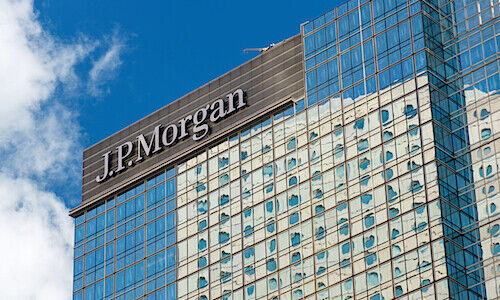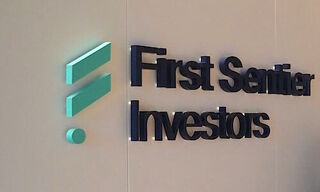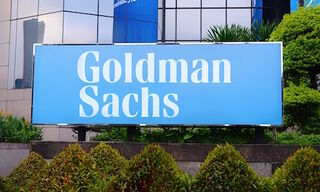HSBC Is Doing Exactly What Ping An Wants – Just Slowly
The possible sale of the business in Canada shows it is simply taking a piecemeal approach to the demands of its largest investor, a finews.asia analysis shows.
British-based financial institution HSBC seems to like to take its time while making things complicated. Either that, or it is engaging in as-yet unknown salami-slicing tactics aimed at surreptitiously spinning off most of its international businesses under the radar.
That is the only realistic explanation of the statement it released Tuesday where it said it was in the early stages of reviewing strategic options for its Canadian business, including a full sale, as finews.asia reported.
This all comes on the back of very public demands by its largest shareholder, Chinese insurer Ping An, which earlier this year suggested that HSBC, two-thirds of which is essentially a large international retail and commercial operation, should spin off its lucrative Asia business - or at least the Hong Kong retail business.
Hidden Value
The insurer believes there is a great deal of hidden market value by separating the regional franchise, the bank’s original base, from its international businesses, many of which are either loss-making or barely profitable.
The Canadian business, however, wasn’t one of them. By pre-tax profit, it was by far the bank’s largest commercial banking business after the UK and Asia, significantly surpassing those in the US, continental Europe, and the Middle East.
In retail, it wasn’t quite as strong. Among HSBC’s second-tier countries, the country lagged Mexico and France (the US business posted a loss as parts are being exited). But it still had heft, contributing almost as much to pre-tax profit as the Singapore and Australia franchises, both of which are seated very comfortably in the strategically prized Asia region.
Short Circuit
But full disposal of the business in Canada, should that happen, would undercut HSBC’s avowed rationale, at least towards Ping An and other shareholders, that it needs to maintain a globally connected structure.
That is in part given the current step comes on the back of an exit, announced earlier this year, from US mass market retail and on top of last year’s news that it would sell off its French individual client franchise.
Even more recently than that, it had ostensibly been briefing groups of fund managers on the potential listing of the Indonesia business, which had been notoriously difficult for it to manage for years given the idiosyncratic nature of regulation and specific governance requirements in that country.
Rump America
But now, the definition of a globally connected structure in North America means having a more or less complete business in Mexico (and, yes, it is not in central or South America) with scattered rumps of businesses in the US and nothing in Canada. It certainly looks odd - if nothing else.
Internationally, does that mean that the bank's locations in Malta, Mauritius, and Sri Lanka are now far more strategically important to clients than large profitable, sustainable franchises in G-7 economies?
Sizeable Cost
The second part of HSBC’s response to Ping An was that any restructuring on the scale that the insurer proposed would be a sizeable one-off cost that would distract key shareholders for a three-to-five-year period.
That justification is also starting to wear thin given it is already deep into the second year of its current approach of hiving off small morsels here and there.
But that - apparently - makes more sense than spending a similar three-to-five-year period instilling the fear of random redundancies and cost-cutting across the entire group while hiring reams of investment bankers, accountants, and system experts every single time to conduct extensive due diligence with largely unwilling, browbeaten staff.
No Questioning
All this goes to show that Ping An is clearly on to something. And that something is the lack of serious, incisive questioning of HSBC’s strategy and business model by its leadership.
They still have no answer for an investment banking business that, without an oversized foreign exchange business, has been treading water for like forever.
Or a private banking business subcritical in mass, so much so that it was quietly folded into the retail business several years back behind the relatively high average balances and investments of Premiere mass affluent clients in prosperous cities like Hong Kong.
Parallel Universe
And then there is Hang Seng bank, sitting there as a fully independent bank, listed, but whose shares are mostly in HSBC's hands. For years, the internal view was that it was too prohibitive a price to pay for the remaining stake.
But that decision entails other costs, such as having the luxury of two parallel banking franchises in Hong Kong as well as several other countries and locations, including China.
They are identical in profile in the places both operate, down to the very breakdown of the retail and commercial segments, with Hang Seng even having elements of private banking and investment banking activity. Branches and ATMs are often within walking distance as are the two head offices in the central business district.
No Timing
But even though the business model seems to make potentially little sense to outside observers, the timing of doing any kind of deal in the current environment is not great.
As finews.asia wrote in connection with Credit Suisse’s impending restructuring announcement, the Ukraine war, higher interest rates, inflation, and threats of recession make this a buyer’s market.
Interested bidders need only to wait to get a better price. That makes the current announcement about Canada even more puzzling given their systemic inability to entertain a more disciplined business model and strategy in the years before Ping An entered the scene.
Kneejerk Reaction
But that may be the larger, even the real problem and something symptomatic at large financial institutions. They refuse to do it because they didn’t think of it first.
Instead, they attempt to take similar, albeit watered-down steps to achieve the same thing while hoping that no one is watching very closely.
If that is the case, someone might also want to put a word in that now is a great time to buy the 37 percent or so of Hang Seng shares they don’t own. They cost almost half the price they would have needed to pay about four years ago.




























